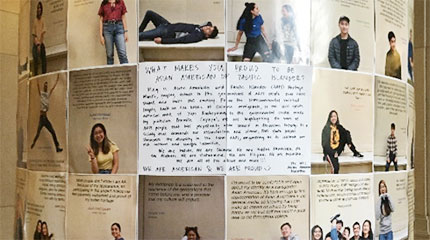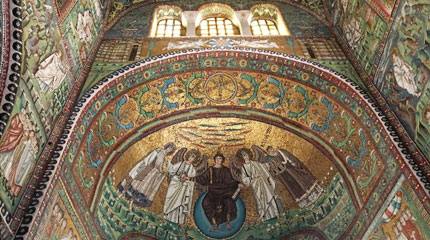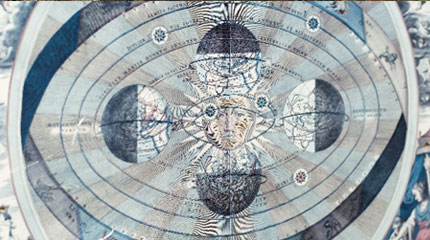Education
Humanities and Social Science Courses
Key Courses (Core Liberal Arts Education) where students are encouraged to learn from each other fall under this category. Other courses that are taught using novel techniques are in the areas of humanities (philosophy, literature, cultural anthropology, art, etc.), social sciences (jurisprudence, political science, sociology, psychology, etc.), and interdisciplinary humanities and sciences (science and technology studies, statistics, decision theory, etc).

Featured Courses
-
Special Lecture: Contemporary Society
 Undergraduate Degree Program (200-Level)
Undergraduate Degree Program (200-Level)Through this course, students acquire knowledge that is essential to our lives in modern times such as the Constitution of Japan, Japan-US relations, Chinese contemporary history, and furthermore gain the opportunity to think deeply about these topics.
Institute Professor Akira Ikegami
Undergraduate Degree Program (200-Level)Message from the teaching staff
The course provides the necessary materials and pointers to aid students' interpretation and understanding of the various events that are reported daily by the media.
What can be gained from this course is down to the individual student. -
Art A
 Undergraduate Degree Program (100-Level)
Undergraduate Degree Program (100-Level)This is an introductory course about Western art history from Ancient Greece to 19th century art. It is the students themselves who take center stage in this course to view and appreciate these artworks.
Each person looks at an artwork from their own perspective and by hearing the unexpected viewpoints of others and learning the background of a piece of art, students are sure to realize the depth and joys of appreciating art.Professor Asa Ito
Undergraduate Degree Program (100-Level)Message from the teaching staff
Art is similar to science and technology — it is about making something.
However, the two disciplines sometimes express completely opposite values. By being exposed to art, not only do students become culturally knowledgeable, but it should allow them to break free from constrained ways of thinking, thus allowing them to interact with others with a more open-minded attitude. -
Science and Technology Ethics B
 Undergraduate Degree Program (200-Level)
Undergraduate Degree Program (200-Level)Studying the diverse ways in which science and technology is related to society and the environment.
Additionally, situations where scientists and engineers are likely to face ethical issues are simulated to teach students ethical decision-making techniques.
This course does not simply teach preventive ethics concerned with 'what should not be done', but also places great emphasis on aspirational ethics that considers 'what can be done' as scientists and engineers.Professor Shunzo Majima
Undergraduate Degree Program (200-Level)Message from the teaching staff
Ethics should never have to be rigidly formal.
This course is intended to engage students with the following question: "to what purpose do we use the science and technology that we study?
Furthermore, using the latest scientific findings on psychology and neuroscience, the course examines how acting ethically as scientists and engineers is not only beneficial to the welfare of society but can elevate one's own well-being. -
Decision Making A
 Undergraduate Degree Program (100-Level)
Undergraduate Degree Program (100-Level)This course deals with various decision making problems in decision making theories. Through lectures and discussion, students examine solutions of the problems, evaluation criteria for comparison of the solutions, insights drawn from the results of the comparison.
This course aims to cultivate the students' interests in decision making theories as well as to acquaint the students with fundamental concepts and basic knowledge in decision making theories.Professor Takehiro Inohara
Undergraduate Degree Program (100-Level)Message from the teaching staff
Various decision-making problems such as elections, distribution of resources and expenses, site selections for public facilities, management of both individual rationality and overall efficiency, and donations are dealt with in a quiz style, and students consider methods for describing and analyzing problems interactively. My hope is that students will be exposed to mathematical approaches to decision making.
-
Special Lecture: American studies
 Undergraduate Degree Program (300-Level)
Undergraduate Degree Program (300-Level)This class covers race, racial issues, and white supremacy in the United States. We will discuss and deepen our understanding of systemic racism such as enslavement, red lining, immigration, and current movements including Black Lives Matter.
Associate Professor Sanae Akaba
Undergraduate Degree Program (300-Level)Message from the teaching staff
I believe human connection can be one of the major components for scientific growth and development. Through this course, I hope you will develop not only cultural understanding but also the ability to empathize with the experiences and emotions of your global collaborators.
The complete listing of Humanities and Social Science Courses is available at TOKYO TECH OCW 100-300-level![]() , 400-600-level
, 400-600-level![]() .
.
